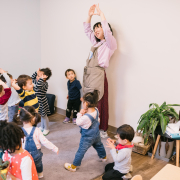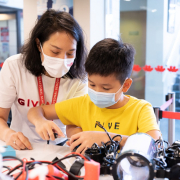
HKCA Po Leung Kuk School
In collaboration with HKCA Po Leung Kuk School
Po Leung Kuk, a long-established charitable organisation, in collaboration with The Hong Kong Construction Association (HKCA), has established a different kind of school – one that is much needed in Hong Kong.
Opened in August 2017, HKCA Po Leung Kuk School is a private, English-medium co-educational International Baccalaureate PYP school in Tin Hau. It is now accepting applications for children aged 3 to 12 (K1 through Grade 6). With no annual levy, no debenture and no hidden costs, this school provides a lower cost, unique choice in the market for parents.
The school is authorised to implement the International Baccalaureate Primary Years Programme (IB-PYP) curriculum framework for children aged 3 to 12. All lessons, except for one daily Chinese lesson in Mandarin, are delivered in English.
The experienced leadership team
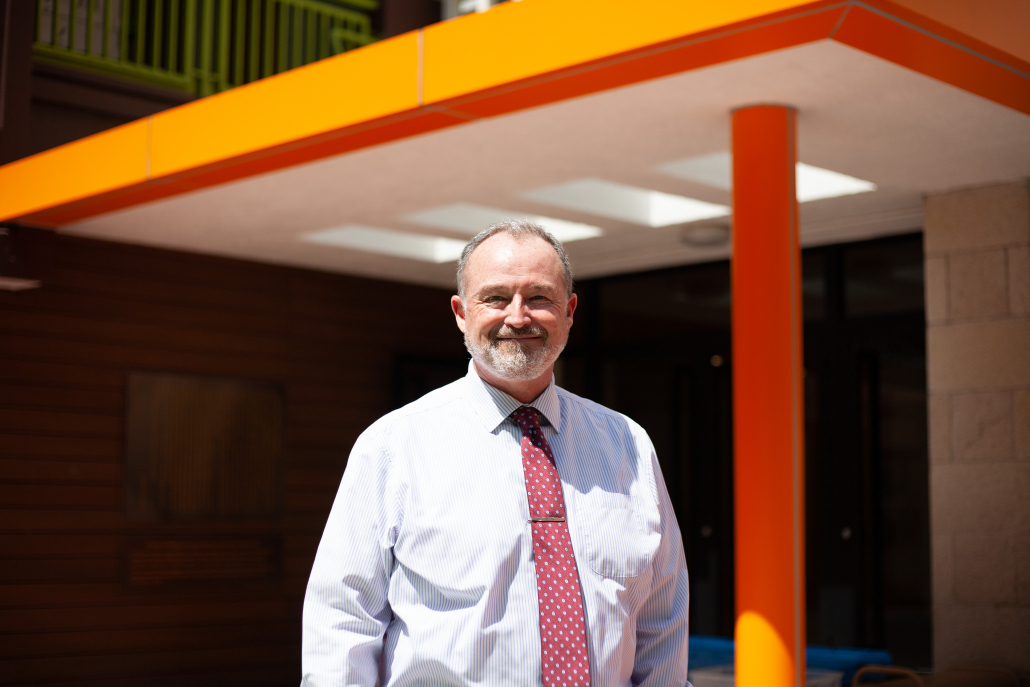
HKCA Po Leung Kuk School is helmed by Principal Mr Perry Tkachuk, who has over 22 years of experience as an educator. He has taught children of all ages, from K1 through to high school, in different capacities in the US, Guatemala, Myanmar, Malaysia, Singapore, and Mainland China.
“This has included roles as an elementary homeroom teacher, Spanish teacher, and Personal, Social and Physical Education (PSPE) teacher,” explains Mr Tkachuk. “I have also served as a middle school Maths-Science teacher for a significant portion of my career.”
As a school leader, Mr Tkachuk has also worked as a PYP Coordinator; Secretary and Chair of the Singapore-Malaysia-Batam PYP Coordinators Network; a WASC Accreditation Visiting Team Member and a School Site Council Member; and a school administrator.
An innovative school campus
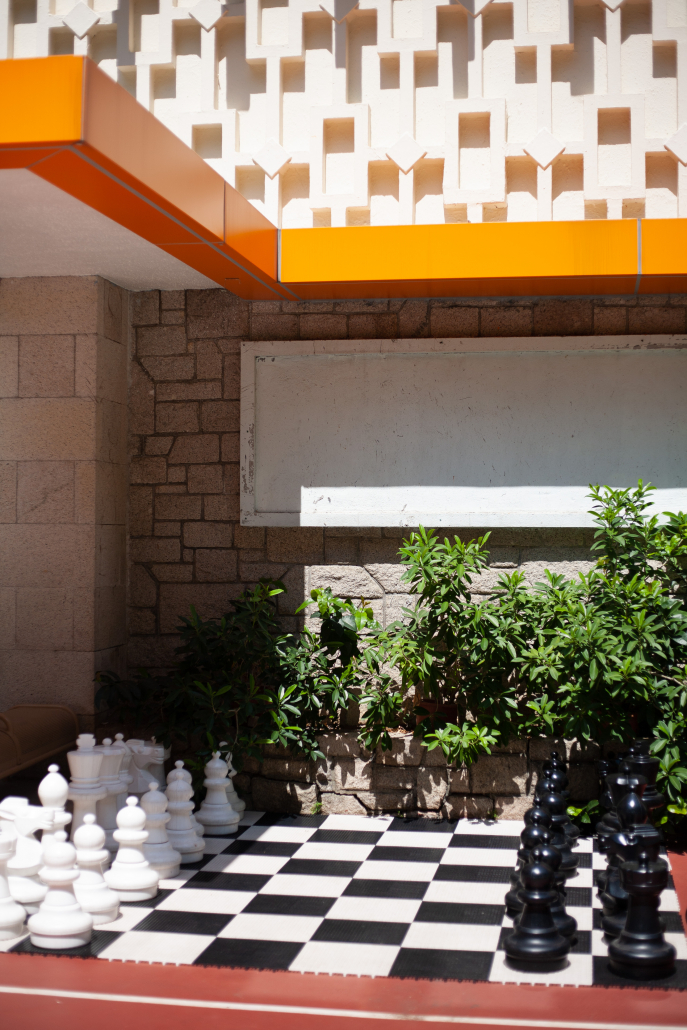
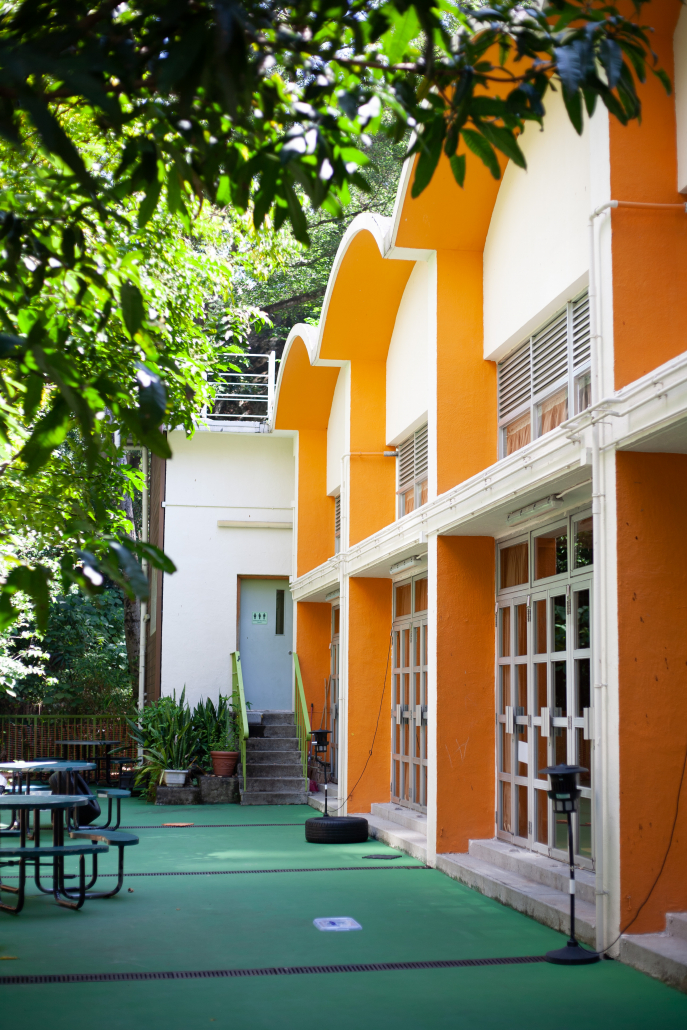
Situated at 62 Tin Hau Temple Road, the school has a small but beautiful campus surrounded by trees, in the heart of Hong Kong Island. Its classrooms and facilities have been renovated over the past few years to provide the best for its students.
“We really value the outdoor learning space amidst the natural environment. We have a Primary playground permanently marked for multiple activities, a life-sized chessboard and a climbing wall. We also have a terrace with a variety of eco-friendly play equipment that is a favourite for both free play and more structured learning,” says Mr Tkachuk.
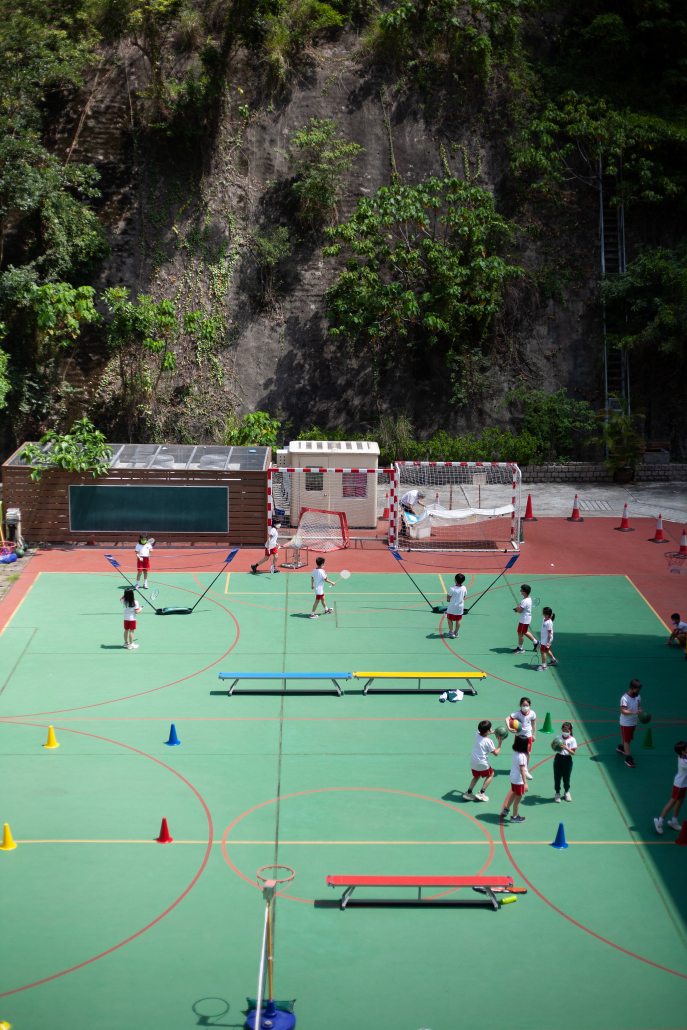
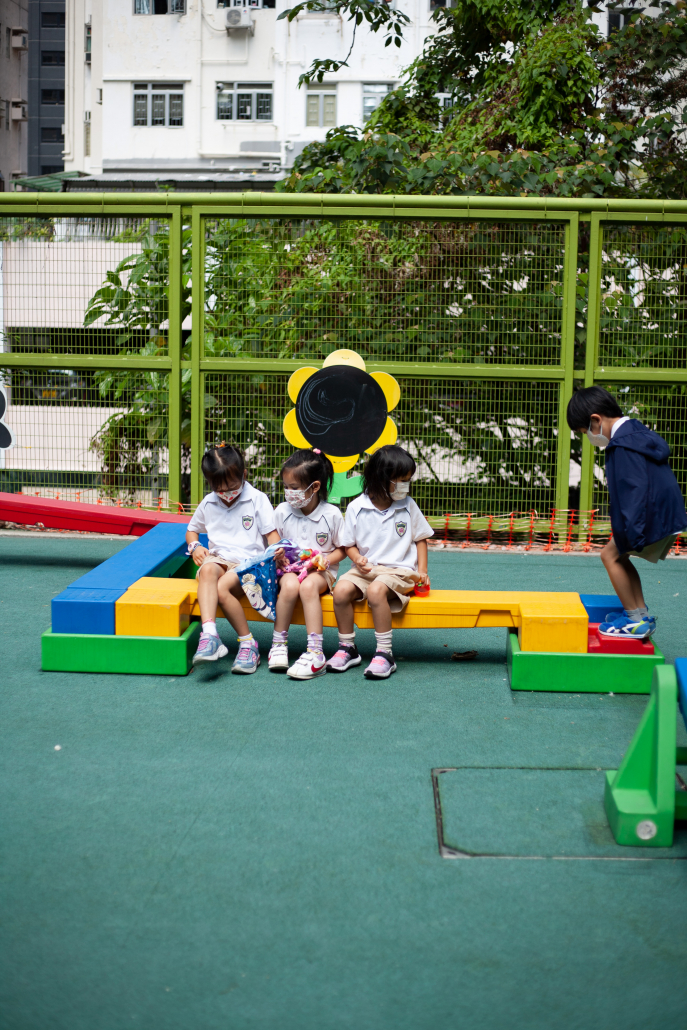
In addition, the school’s Kindergarten playground offers a cushioned play surface with plenty of resources for its youngest learners to explore while developing socially, emotionally and physically. Overall, the warm and welcoming campus is designed in a way that inspires the school’s students and teachers to learn both inside and outside of the classroom because of the variety and flexibility it offers.
The PYP curriculum and its benefits
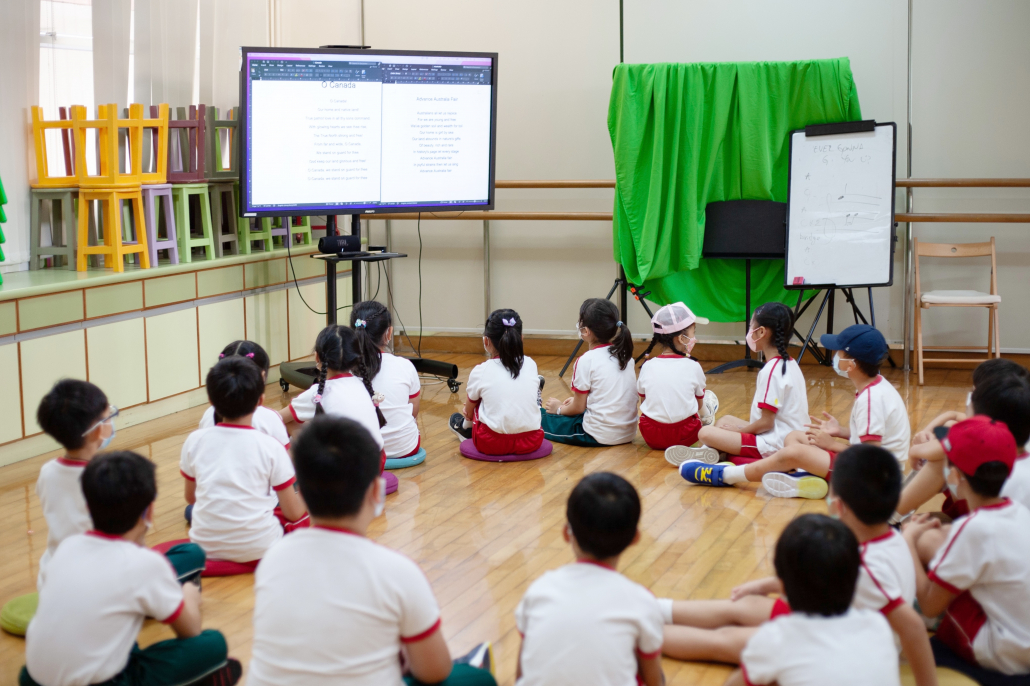
Mr Tkachuk was initially drawn to HKCA Po Leung Kuk School because of its strong PYP ethos, where students are accepted for who they are and appreciated for their differences. This appreciation for diversity was also strongly evident in the school’s diverse teaching staff, with teachers and support staff coming from all over the globe.
“We continue to pride ourselves on embracing this diversity throughout our entire learning community. I also had a strong feeling that the school was very much committed to making sure it lived up to our mantra of, “Kids love coming to school here”. If you ever have the chance to watch our students running up the driveway in the morning to get to class, you’ll know it’s true as well.”
But first, a brief overview of the PYP curriculum framework for those who are unfamiliar with it: PYP centres on transdisciplinary learning, guided by six transdisciplinary themes of global significance (Who We Are, How We Organise Ourselves, Where We Are in Place and Time, How We Express Ourselves, How the World Works, Sharing the Planet). Students experience learning between, across and beyond the traditional subject boundaries of literacy, maths, science and social studies and connect their learning to life outside of school.
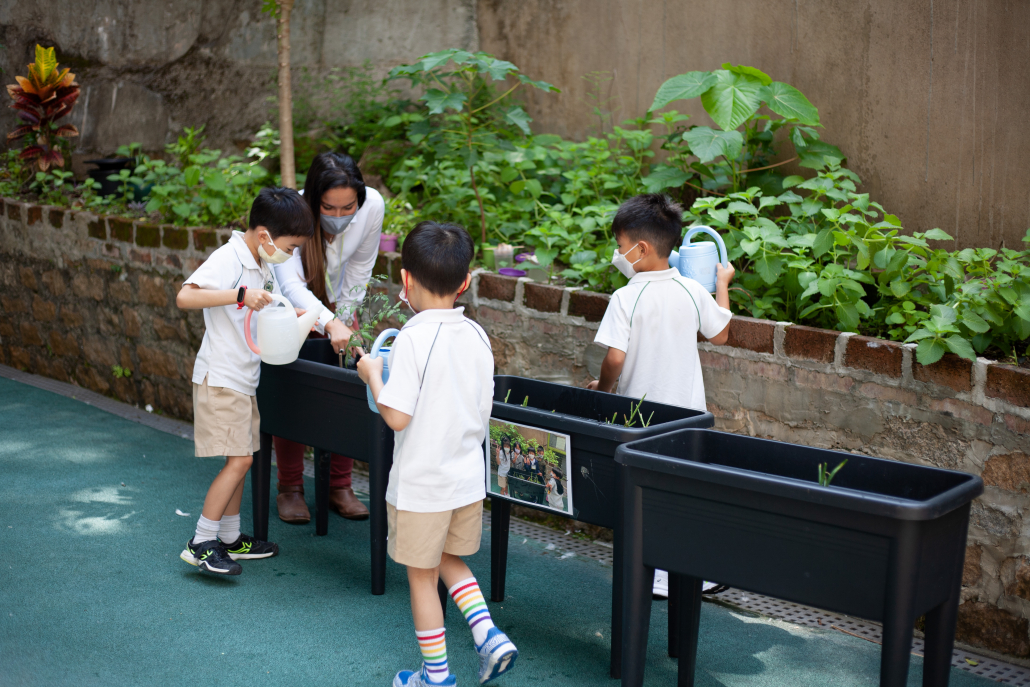
“Our programme is inquiry and concept-based and is designed to be engaging, significant, challenging and relevant to all learners. The PYP focuses on the development of the whole child, including their academic, cultural, emotional, social and physical growth and wellbeing. Our programme also offers an opportunity for all students to learn Mandarin-Chinese using traditional Chinese characters.”
The school is set to help its students foster their individual strengths and abilities. Firstly, a PYP school focuses on developing every child as a unique individual. In addition to holding up high academic standards, teachers collaboratively plan to make sure essential skills are being developed that will allow all students to achieve great things, no matter which paths they choose in life. This includes focusing on the development of social skills, self-management skills, communication skills, thinking skills and research skills.
The PYP’s transdisciplinary design also means that children are constantly wrestling with big, complex problems they are interested in. They then solve them using a mixture of different skills they are developing within and across disciplines. Allowing students to express their own voices and choose to inquire into things they are interested in also has a very positive impact on their confidence, enthusiasm, and engagement.
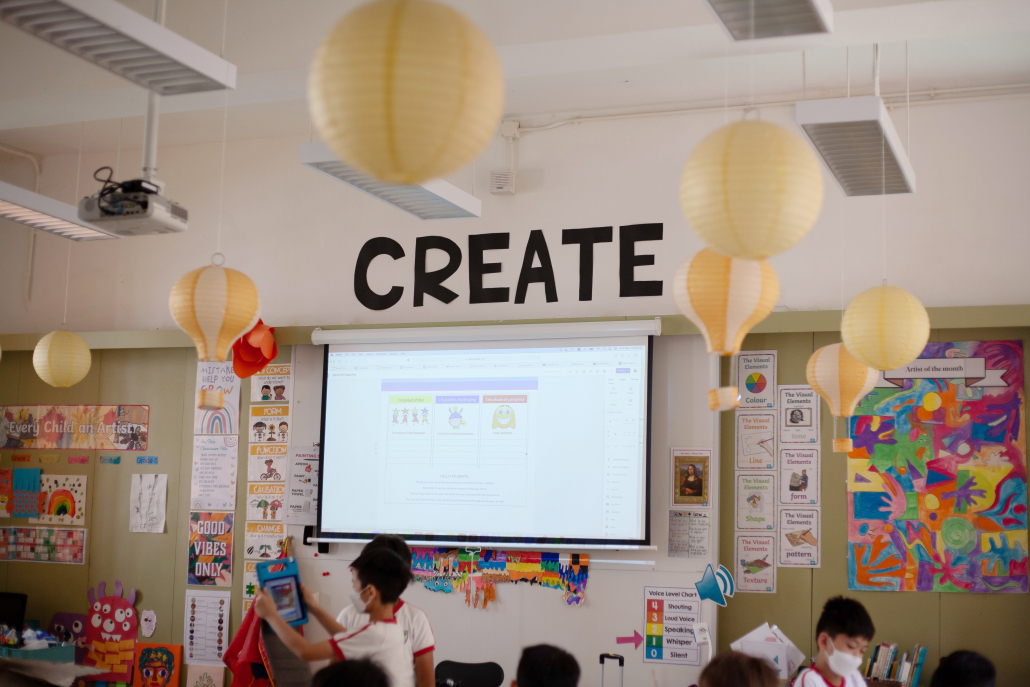
“One of the best things we can hear as PYP practitioners is when students realise they are using so many different tools, such as math, science, and communication skills, altogether, to consider and solve problems in their own unique ways.”
Finally, the commitment to international-mindedness is a key aspect of the PYP. Children are encouraged to bring their own unique backgrounds, experiences, and ideas to the table to share and build upon. They learn to look at the world through individual, national and global lenses that they might not have otherwise been exposed to, allowing them to develop greater empathy for others and inspire them to take self-directed, meaningful action.
Enrichment through after school activities
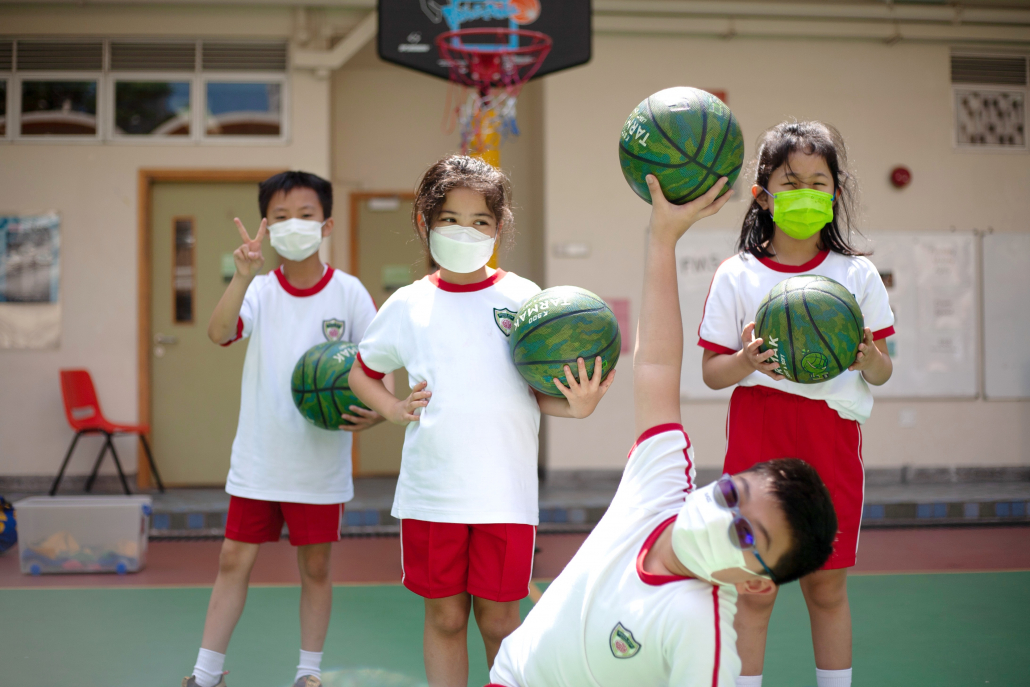
At HKCA Po Leung Kuk School, the purpose of After School Activities (ASA’s) is to nurture holistic interests, strengths and abilities in fun ways. In the past, prior to Covid-19, the school offered a wide variety of interest-based ASA’s including arts and crafts, dance, games, music, science, sports and technology.
“Student interest and choice is the driving force behind deciding which activities we will offer,” says Mr Tkachuk. “With so many talented and ambitious staff members with different skills and interests, as well as access to many outside providers of different learning activities, we look forward to offering a wide array of ASA’s going forward.”
Looking forward
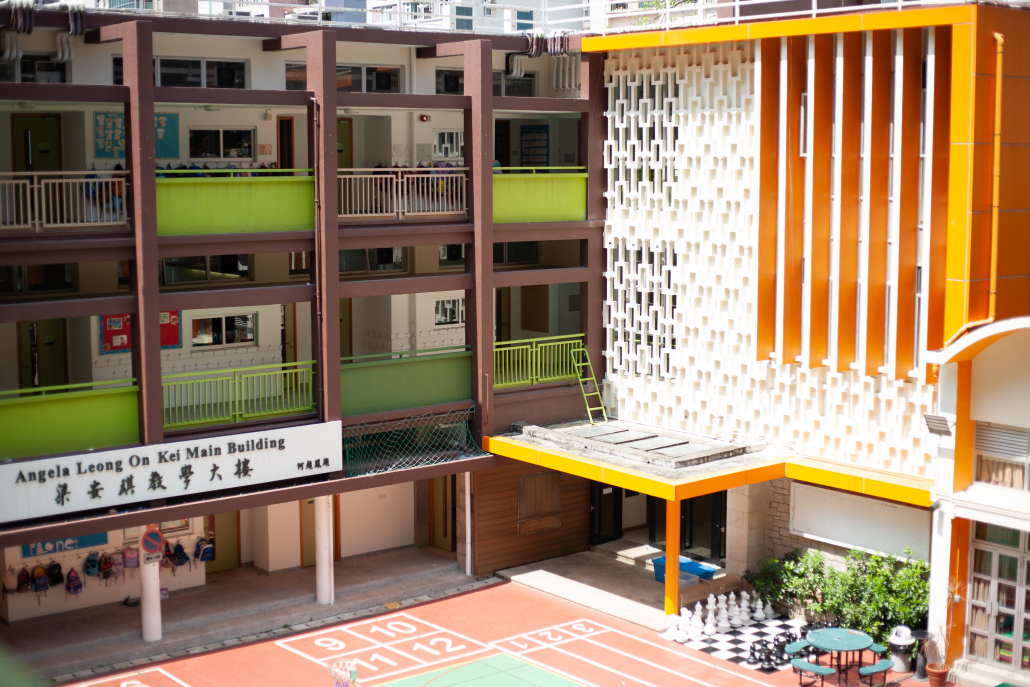
For Mr Tkachuk, there’s only one goal looking forward: “Learning, for every child in a variety of areas, of course.”
With Covid-19 restrictions easing, he hopes to have as many students on campus for full-day, face-to-face learning as often as possible. The school started with full-day, face-to-face classes for the entire first term and is finally back to full-day, face-to-face learning now.
“This has not come easy and has been a massive team effort by our entire staff. I am extremely proud of such an extraordinary learning community, including the families who have their children in our school. They are truly amazing.”
HKCA Po Leung Kuk School is currently accepting applications for both the 2021-2022 and 2022-2023 school years. Its admissions process and procedures can be found on their website or by contacting the Admissions Officer Mr Heison Au at admissions@plkis.edu.hk.


